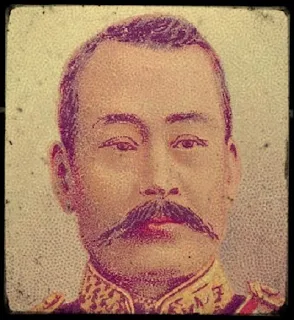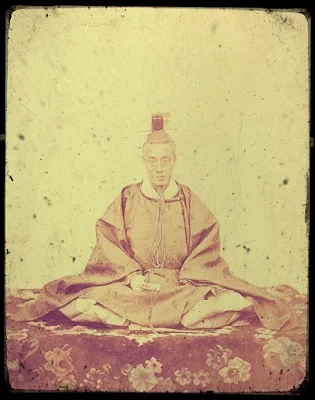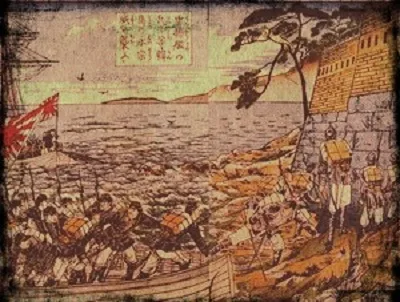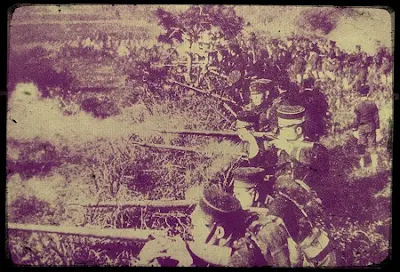Sino-Japanese War I
First Dispute
- The First Sino-Japanese War Which took place between 1894 and 1895 Is classified as the first major Military conflict against a foreign power in Japan's Contemporary History following the end of Japan's Isolationist Policy The demise of the Tokugawa Shogunate feudal period and the beginning of the Meiji Restoration in 1868.
- Japan experienced a period of European-Style modernization that quickly became a rising Military And Economic power in the region.
Korea And Rapidly Escalating Events
- At the same time, the following period saw an unprecedented increase in Disputes between the Empire of China and the Empire of Japan with the Korean Peninsula becoming a source of Contention between the two sides.
- While China has sought to Maintain Its Influence in Korea, Japan has sought to exclude it from the region to acquire the Strategically located Korean Peninsula rich in natural resources, such as iron and coal That were essential to feeding Japan's Growing Industry.
Japan's Success
In the face of Japan's success in Achieving economic and military progress, China, considered the Region's Traditional Power Has retained its Antiquated Character. After centuries of sustained domination of the Korean Peninsula, Vietnam, and sometimes Japan, China has suffered numerous Setbacks, mainly in the loss of the opium wars and its abject failure to introduce economic and military reforms. As the latter was subjected to constant insults by France and Britain throughout the nineteenth century, Japan tended to change The Balance Of Power in the region through a War in which Chinese Influence in the region would be ended and replaced by Japanese Influence.
Declaration Of War
- On July 23, 1894, the Japanese Army intervened in the Seoul region of the Korean Peninsula, before fighting its first battle against Chinese forces about 5 days later, in what was known as the Battle of Asan. During this battle The Japanese succeeded in cutting off supplies to the Chinese army Which suffered a severe defeat after about 500 of its soldiers were killed and wounded. At the same time, China and Japan did not hesitate to formally declare war on each other in early August 1894.
- Meanwhile, most of the battles of the First Sino-Japanese War took place at sea During which the Japanese Navy imposed itself thanks to the development of its warships.
- While Japan spent considerable sums of money repairing and modernizing its navy, China maintained its Aging Navy, with Empress Cixi favoring the confiscation of a significant proportion of the money that would have been spent on Chinese ships to be used to repair Beijing's Summer Imperial Palace.
- Following the Battle of Asan, Chinese forces retreated towards Pyongyang. At the same time Japanese Forces laid a suffocating siege on the city before attacking it between September 14 and 15, 1894.
- During this offensive, Chinese Forces suffered another defeat, losing 6,000 soldiers dead or wounded.
The Shimonoseki Agreement And China Collapse
- Between October and November 1894, the Japanese armies made several gains, as the latter succeeded in entering the territory of Manchuria and landed its forces on the Liaotong Peninsula As well as Japan succeeded in controlling the Chinese cities of Mukden, Xiuyan, Talienwan, and Lushunkou.
- Simultaneously with the Chinese navy's loss of the Battle Of Weihai and Japan's control of both Manchuria And The Pescadores Islands, in March 1895 the Chinese Authorities moved towards a Peace Agreement with Japan.
- Accordingly, on April 17, 1895, the two parties signed the Shimonoseki Agreement, which stripped China of the Pescadors, Taiwan, and Liaotong, with the latter ceding all these properties to Japan. The Chinese Empire recognized Korea's Independence and agreed to provide financial compensation to Japan and grant it Enormous Trade Privileges.
- Meanwhile, Russia, France and Britain feared Japan's rapid expansion in the region And with the growing possibility of Military Intervention against it, Japan agreed to return the Liaotong region to the Chinese.







